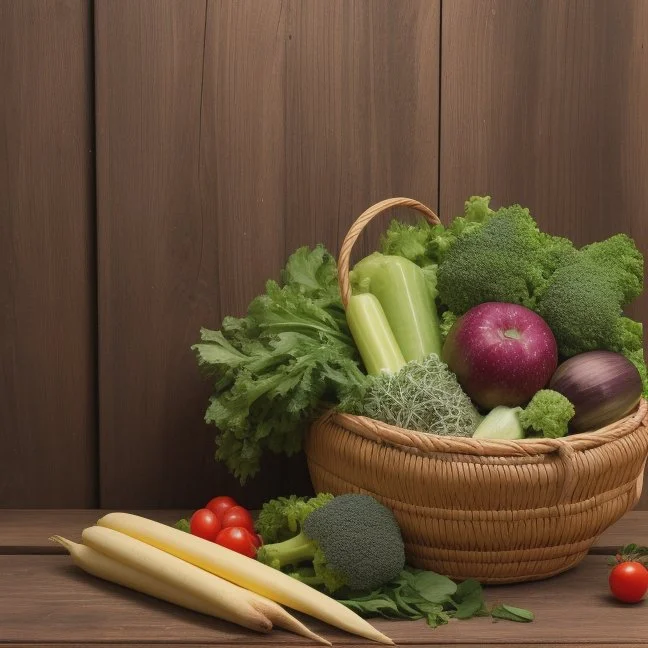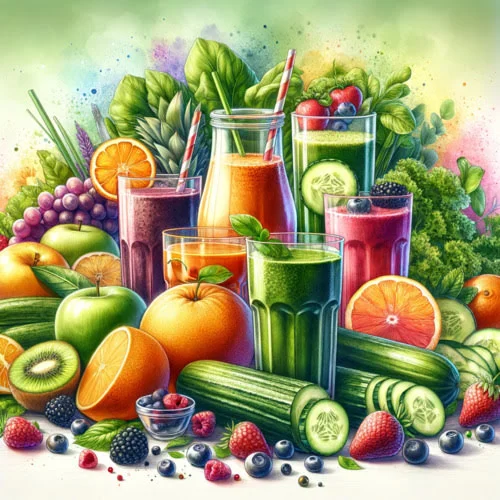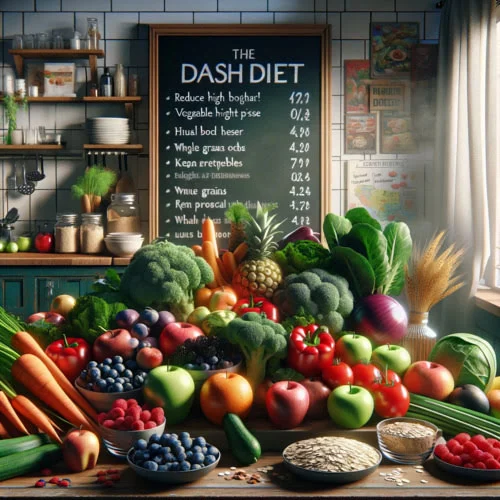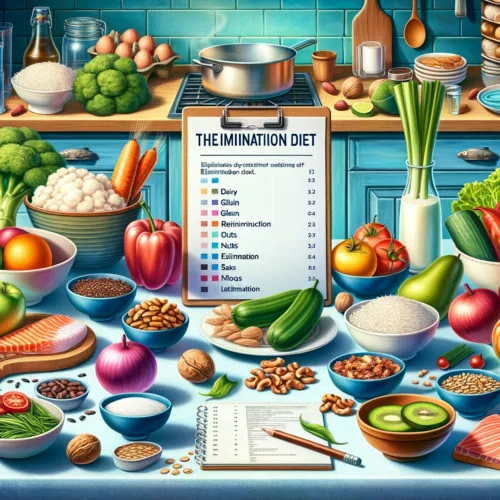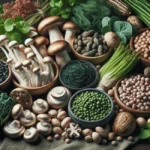Greetings, dear readers! In the world of modern dietetics, one of the most important issues is becoming the choice between organic food and genetically modified foods (GMOs). As a nutritionist, I am often faced with questions about which is better for our health and the environment. Let’s break down this dilemma and try to find the best solution. Organic food vs GMOs.
The relevance of the choice between organic food and GMOs
Today, when the pace of life is fast and the choice of foods on supermarket shelves sometimes seems endless, the question of what we put in our bodies is more important than ever. On the one hand, organic food promises us purity and naturalness, while GMOs, on the other hand, are positioned as products that can provide more efficient agricultural production. However, it is important to understand how these choices can affect our health and the environment before making a decision.
Organic Food: In Search of Naturalness
Organic food is not just food, it is a way of life that emphasizes the importance of pure and natural products. Grown without the use of chemical fertilizers and pesticides, organic food gives us the opportunity to enjoy the taste of nature in its pristine form. However, progress doesn’t stand still and it’s worth looking at both sides of the coin.
Genetically Modified Products: Modernizing Agriculture
On the other hand, GMO foods provide us with a means to efficiently increase food production, which is especially important in a growing world population. Gene engineering can improve disease resistance, crop yields, and even the nutritional quality of foods. However, there are concerns about the impact of genetically modified foods on human health, and it is important to weigh the pros and cons of this approach.
Organic food and GMO foods offer unique benefits and challenges. In the following parts of this article, we will look at how to make informed choices that fit your needs and values.
What is organic food?
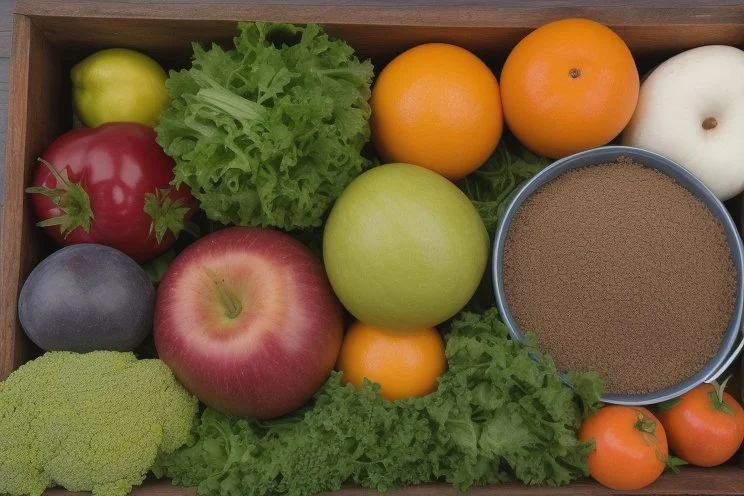
Organic foods are agricultural products that are grown without the use of synthetic chemical fertilizers, pesticides and genetically modified organisms (GMOs). These products strive to preserve nature’s integrity and care for the environment by offering consumers more natural and environmentally friendly alternatives.
Definition of organic products
Organic produce, in order to meet standards, must be grown according to certain standards and principles. The main definition of organic produce includes:
1. No chemical fertilizers and pesticides: Organic crops are grown without the use of synthetic chemicals that can contaminate soil and water and leave residues in produce.
2. GMO ban: Genetically modified organisms (GMOs) are prohibited in organic farming. This ensures that products are natural and do not contain genetically modified ingredients.
3. Soil and Ecosystem Care: Organic farmers strive to maintain soil and ecosystem health using practices that promote a natural balance in nature.
4. Antibiotic and growth hormone free animal husbandry: Organic animal husbandry uses standards that prohibit the use of antibiotics and growth hormones, ensuring more natural and ethical animal husbandry.
Basic principles and standards of organic agriculture
The basic principles and standards of organic farming are:
1. Ecosystem Integrity: Organic agriculture seeks to conserve biodiversity, minimize negative environmental impacts, and maintain ecosystem health.
2. Openness and transparency: Farmers and organic producers are required to comply with strict regulations and provide documentation of the growing and production process.
3. Animal care: Organic animal husbandry involves caring for animals, ensuring they have access to fresh food, water and space to move around.
4. Prohibition of synthetic substances: Sy nthetic fertilizers, pesticides and genetically modified organisms are prohibited.
Organic products combine these principles and standards to provide consumers with products that are not only safe for health, but also promote environmental sustainability and respect for nature.
What are genetically modified foods (GMOs)?

Genetically modified products, or GMOs, are organisms, including plants and animals, whose genetic materials have been altered to introduce specific characteristics or properties. These modifications are made by introducing genetic material from one organism into another, thereby creating new species with desired characteristics.
Definition of GMOs and their history
Genetic modification began in the mid-20th century and was aimed at improving agricultural productivity. The first GMOs were associated with the introduction of genes that promoted resistance to disease or pests, as well as increased plant yields. One of the first commercially successful GMO products was the Flavr Savor tomato in 1994, which was developed for better storage and transportation.
Since then, the technology of genetic modification of foods has continued to evolve and today covers a wide range of products, including soybeans, corn, cotton, fish and even animals. The main goals include resistance to disease, pests, better quality and longer shelf life, and the development of products with enhanced nutritional properties.
How products are genetically modified
Genetic modification of products involves the following steps:
1. Selection of desired genes: Specialists select genes with desired properties from one organism and plan to introduce them into the target organism.
2. gene extraction and insertion into the target organism: Selected genes are extracted and inserted into the DNA of the target organism, usually using bacteria or viruses for gene transfer.
3. Reproduction and selection: Organisms in which genetic modification has been successful reproduce and their offspring inherit the desired properties.
4. Testing and Regulation: GMOs undergo rigorous testing and safety assessments to determine if there are any undesirable effects on human health and the environment.
Genetic modification of products raises a wide range of debates and questions about safety, ethics and environmental impact. This makes GMOs one of the most debated topics in agriculture and nutrition.
Benefits of organic food
Consuming organic foods can have several notable benefits for your health and the environment. Here are some of the major benefits of organic food:
No pesticides and chemical fertilizers
Organic food is grown without the use of synthetic pesticides and chemical fertilizers. This means that it does not contain residues of harmful chemicals that can have a negative impact on your health. Not using pesticides also helps to preserve biodiversity and protect the environment.
Higher nutrient and antioxidant content
Studies show that organic foods often contain more nutrients, including vitamins, minerals and antioxidants, compared to conventional foods. This is because organic plants grow in mineral-rich soils and are not subjected to synthetic fertilizers, which promotes the development of more nutritious fruits and vegetables.
GMO-free
Organic food prohibits the use of genetically modified organisms (GMOs) in production. This provides assurance that products do not contain genetically modified ingredients, which can be a concern for some consumers.
Absence of antibiotics and growth hormones
Organic livestock farming typically involves caring for animals without the use of antibiotics and growth hormones. This promotes the production of cleaner meat, milk and eggs, and reduces the risk of antibiotic-resistant bacteria.
Supporting sustainable agriculture
Choosing organic products also supports sustainable agriculture that pays attention to soil, water and biodiversity conservation. This contributes to the long-term sustainability of the food system.
Organic food is a healthy and responsible solution for those who value their health and the environment. It is important to remember that while organic food has its benefits, it is important to maintain variety in your diet and to keep your nutritional balance in check.
Benefits of genetically modified foods (GMOs)
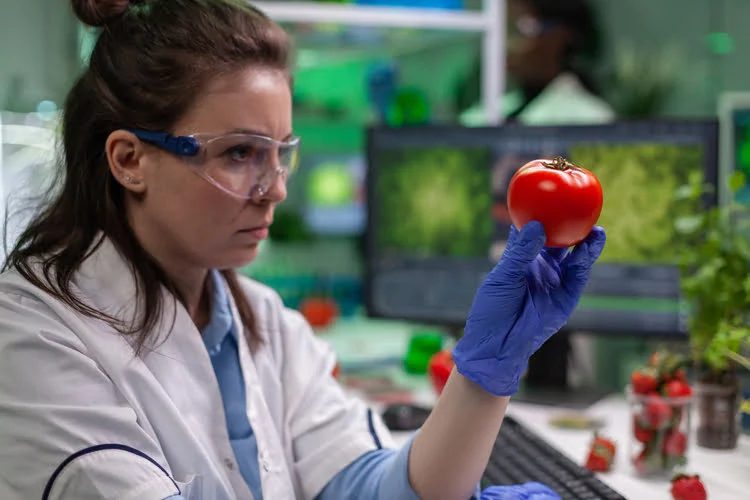
Genetically modified foods (GMOs) provide a number of benefits that may be important to agriculture and the food industry. Some of the key benefits of GMOs are discussed below:
Increased resistance to diseases and pests
Genetic modification makes it possible to create plants that are more resistant to diseases and pests. This reduces the need for pesticide use and crop losses, which can significantly increase agricultural productivity. Farmers can grow more food and reduce their disease and pest control costs.
Reducing the need for pesticides
Due to their resistance to disease and pests, GMO plants often require fewer pesticides to ensure crop safety. This has a positive impact on the environment, as chemical contamination of soil and water is reduced, and the risk of negative impacts on populations and biodiversity is reduced.
Increased yield and productivity
GMO plants can be engineered to increase yields and productivity. For example, plants can be altered to better absorb water and nutrients, resulting in more bountiful harvests. This can help fight hunger and provide food for the world’s growing population.
Long storage and transportation time
Some GMO products may have a longer shelf life and better resistance to transportation. This is important to prevent product loss during transportation and storage, which helps reduce food waste.
Adaptation to climate change
GMO plants can be engineered to better adapt to changing climatic conditions such as drought or elevated temperatures. This helps farmers to keep their crops sustainable even in a changing climate.
Despite these benefits, it is important to note that the safety and ethical aspects of GMOs remain subject to debate and require careful regulation and surveillance. GMO products should undergo rigorous testing and safety assessments to minimize potential risks to humanity and the environment.
Possible risks and benefits of GMO foods
There is a wide range of opinions and scientific research regarding the risks and benefits of genetically modified foods (GMOs). Below I will provide an overview of some key aspects:
Benefits of GMO foods
1. Increased yields: GMO plants can produce larger yields, which can help supply food for the world’s growing population.
2. Disease and pest resistance: GMO plants can be more resistant to diseases and pests, thus reducing pesticide use and increasing crop safety.
3. Reduced product losses: GMO products can have longer shelf life and better resistance to transportation, which reduces food waste.
Possible risks of GMO foods
1. Potential Health Effects: There is concern about the potential effects of GMO foods on human health. Some studies suggest that they may cause allergic reactions or other adverse effects, although most studies do not confirm such effects.
2. Environmental impacts: The cultivation of GMO plants can have environmental impacts, including the potential for the spread of genetically modified organisms to natural populations.
3. Potential loss of biodiversity: Introduction of GMO plants may compete with wild species and lead to loss of biodiversity.
It should be noted that there are many scientific studies and expert opinions, and many organizations, such as the World Health Organization (WHO) and the U.S. National Academy of Sciences, have reviewed studies and concluded that GMO foods that have undergone rigorous safety evaluations may be safe for consumption.
However, it is important to continue to monitor research and discuss these issues to ensure the safe introduction of GMO foods and minimize potential health and environmental risks.
Environmental aspect: Organic and GMO products
The ecological aspect in food production is critical to the sustainability of the food system and the protection of the environment. Let’s look at how organic and GMO products affect the environment
Organic products
1. Positive environmental impact: Organic agriculture pays attention to the care of soil, biodiversity and water resources. The absence of synthetic chemical fertilizers and pesticides reduces soil and water pollution and reduces the negative impact on ecosystems.
2. Supporting biodiversity: Organic farming can contribute to biodiversity conservation because it addresses the need to preserve species diversity and maintain healthy ecosystems.
3. Reducing greenhouse gas emissions: Without the use of synthetic fertilizers and pesticides, organic agriculture can reduce greenhouse gas emissions, which has a positive impact on combating climate change.
GMO products
1. Increased yields: GMO plants can produce larger yields on a smaller area of land. This can help conserve natural resources and forest land, as the need for agricultural expansion may be reduced.
2. Reduced pesticide use: GMO plants that are resistant to pests can reduce the need for chemical pesticides, leading to reduced environmental pollution.
Comparison of environmental impacts
Both types of agriculture have their pros and cons from an ecological point of view.
Organic produce contributes to biodiversity, reduces soil and water pollution, and promotes ecosystem health. However, it is usually less productive and requires more land to produce the same amount of output as GMO produce.
GMO products can increase crop yields and reduce the need for chemical pesticides, which can save land and resources. However, there are concerns about the potential impact on natural ecosystems and biodiversity.
So, the choice between organic and GMO production in ecological terms depends on the balance between the need to increase yields and to preserve the environment. It also depends on the specific practices and methods used in each case, as well as on local conditions and agricultural production goals.
Nutrition and Health: Organic Food and GMO Products
Nutrition plays an important role in our health, and the choice between organic and GMO foods can raise questions for many consumers. Here are some key aspects of the impact of organic and GMO products on human health:
Consumption of organic products
1. Health benefits of pesticide-free: One of the main arguments for organic produce is the absence of synthetic pesticides and chemical fertilizers. This can reduce the risk of potential negative effects of these chemicals on human health.
2. higher nutrient and antioxidant content: Some studies suggest that organic produce may contain more nutrients, including vitamins and minerals, as well as antioxidants that promote health and protect against free radicals.
Consumption of GMO products
1. No proven adverse health effects: Scientific evaluations by organizations such as the World Health Organization (WHO) and the U.S. National Academy of Sciences have found no conclusive evidence that GMO foods that have undergone rigorous safety evaluations have adverse health effects.
2. Increased yields and food availability: GMO plants can help fight hunger because they can produce more on less land, making food more accessible and cheaper.
Links between GMO foods and disease
At this time, there is no conclusive scientific evidence to support a direct link between the consumption of GMO foods and certain diseases in humans. Organizations such as WHO and the American Medical Research Association (AMA) emphasize that GMO foods that have undergone safety assessments are considered safe for consumption.
However, it is important to note that research in this area is ongoing, and the long-term health effects of GMO foods remain the subject of research and debate.
It is important for consumers to monitor product information, evaluate the circumstances of the product source, and make nutritional decisions based on their own beliefs and preferences, taking into account current scientific information.
How to decide: Organic and GMO products
Deciding between organic and GMO foods depends on many factors, including your personal preferences, budget and goals. Here are some tips that can help you make an informed choice:
1. assess your budget: The first step is to assess your finances. Organic foods are often more expensive than conventional or GMO foods. Decide how much you are willing to budget for produce and choose products that fit your budget.
2. Get information: Get information about what organic and GMO foods are. Understanding the difference between the two will help you make an informed choice. Use resources such as organic certification websites and scientific articles to get more information.
3. prioritize your priorities: Ask yourself questions about what is important to you. If you value the environment and care about biodiversity, organic produce may be your preferred choice. If food availability and yields are important to you, GMO products may be a better choice.
4. Consider your personal dietary needs: Consider your dietary restrictions and needs. For example, if you follow a certain diet, consult your doctor or dietitian for recommendations regarding organic or GMO foods.
5. Consider local options: Sometimes local products, even if they are not organic, can be sustainable and cost-effective. Supporting local farmers and markets can be a profitable option.
6. Experiment and adapt: Start small and experiment. You can start by choosing organic products for some of the categories you consider most important to you and gradually expand your preferences.
Deciding between organic and GMO foods is an individual process that depends on your values and situation. It is important to assess your needs and stay informed in order to make a choice that fits your goals and budget.
The future of food, organic food and GMOs
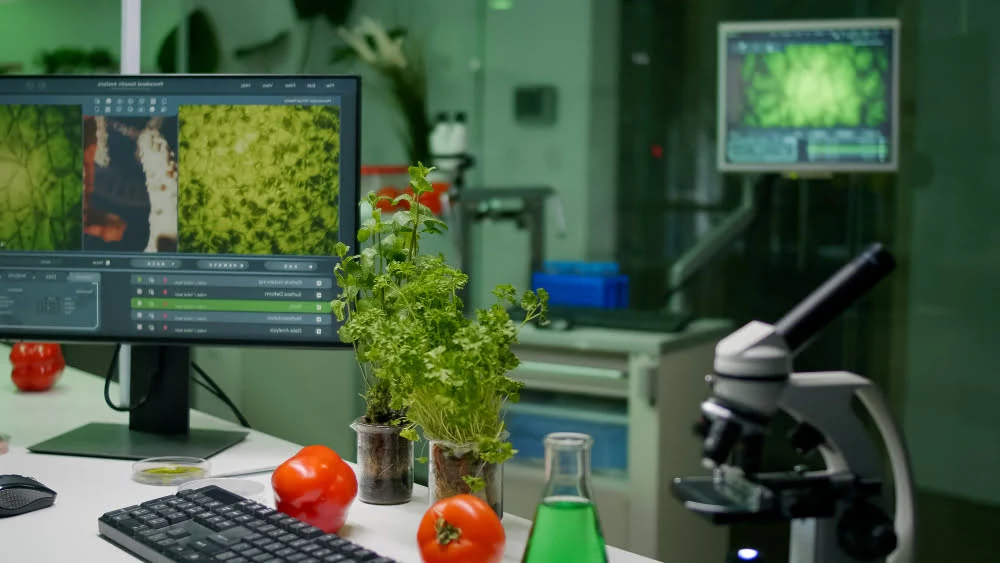
The agriculture and food industry is in constant evolution, and the future of food will reflect new trends and challenges. Here are some predictions for the development of organic and GMO products in the future:
Trends in agriculture and food industry
- 1. Sustainable Agriculture: Increased emphasis on sustainable agriculture will continue to grow. Farmers will increasingly utilize practices that reduce negative environmental impacts, such as organic practices and modern technology.
- 2. Growing interest in local products: Consumers will increasingly seek out local products as it helps sustain local economies and reduce environmental footprints.
- 3. Digital Technology and Smart Agriculture: The use of digital technology, drones and artificial intelligence in agriculture will increase, which will improve efficiency and yields.
Development of organic and GMO products
- 1. Growth of organic products: Organic products will continue to grow in popularity as consumers increasingly value sustainable production methods and product quality. There is likely to be a wider spread of organic farming methods.
- 2. stricter regulations and certifications: Organic products will be subject to stricter regulations and certifications to ensure their quality and integrity.
- 3. Continued development of GMO production: GMO production will continue to evolve and new plant species can be developed to increase resistance to disease and climate change. However, there will be efforts to strengthen oversight and regulation of GMO products.
In the future, nutrition will continue to evolve in response to changing consumer needs and the challenges of climate change and food system sustainability. New methods and technologies to ensure food availability, safety and sustainability will be actively explored.
Conclusion
In a world saturated with a variety of products and production methods, the choice between organic and GMO products is becoming increasingly relevant and important. Based on our beliefs, values and needs, the choice can have an impact on our health, the environment and the future of our planet.
Organic produce offers us environmentally friendly products free of synthetic chemicals and supports biodiversity and sustainable agriculture. GMO products, on the other hand, can provide more efficient land use and yields, contributing to product availability.
However, as with any issue, this choice has complexity and many aspects. It is important to remember that there is no one-size-fits-all answer to the question of what is better, organic or GMO produce. Instead, the key is to take an informed approach and adapt to one’s needs and goals.
No matter what choices you make, it is important that they are informed and based on knowledge of where your food comes from and how it impacts you and our planet. Continued discussion and research in this area is essential to better understand the consequences of our choices and to develop a more sustainable and healthy food system.
It is important to remember that nutrition is an individual and personal decision. Be conscious consumers and continue to seek knowledge about the foods you choose, their origins and their effects. Through this knowledge, we can make the world a healthier and more sustainable place for all of us.
Organic food – frequent questions
Organic produce is based on agricultural methods that exclude chemical fertilizers and pesticides, while GMO produce involves genetic modification of plants or animals.
Organic food is often associated with the absence of synthetic chemicals, higher nutrient content, and support for sustainable agricultural practices.
GMO foods can provide increased yields, disease resistance, and reduced need for pesticides.
Scientific evaluations by global organizations have not found conclusive evidence of health harms from consumption of safety-assessed GMO foods.
Organic products support sustainable agriculture and biodiversity, while GMO products can reduce pesticide use and increase agricultural efficiency.
It is recommended to consider budget, personal goals, and awareness to make informed nutritional decisions.
The future of food expects sustainability, an increased interest in local products and the development of digital technology in agriculture. Organic and GMO products will continue to evolve, with stricter regulations and certifications.

